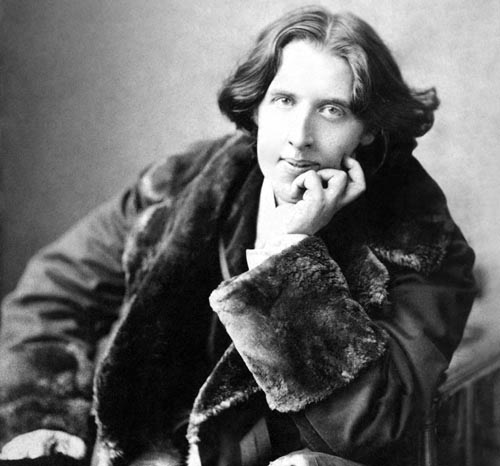
Por Oscar Wilde
I.
Ya no vestía su casaca escarlata,
Porque rojos son la sangre y el vino
Y sangre y vino había en sus manos
Cuando lo sorprendieron con la muerta,
La pobre muerta a la que había amado
Y a la que asesinó en su lecho.
Entre los reos caminaba
Con un mísero uniforme gris
Y una gorrilla en la cabeza;
Parecía andar ligero y alegre,
Pero nunca vi a un hombre que mirara
Con tanta avidez la luz del día.
Nunca vi a un hombre que mirara
Con ojos tan ávidos
Ese pequeño toldo azul
Al que los presos llaman cielo
Y cada nube que pasaba
Con sus velas de plata.
Yo, con otras almas en pena,
Caminaba en otro corro
Y me preguntaba si aquel hombre habría hecho
Algo grande o algo pequeño,
Cuando una voz susurró a mis espaldas:
«¡A ese tipo lo van a colgar!»
¡Santo Cristo! Hasta los muros de la cárcel
de pronto parecieron vacilar
y el cielo sobre mi cabeza se convirtió
en un casco de acero ardiente;
y, aunque yo también era un alma en pena,
mi pena no podía sentirla.
Sólo sabía que una idea obsesiva
Apresuraba su paso, y por qué
Miraba al día deslumbrante
Con tan ávidos ojos;
Aquel hombre había matado lo que amaba,
Y por eso iba a morir.
Aunque todos los hombres matan lo que aman,
Que lo oiga todo el mundo,
Unos lo hacen con una mirada amarga,
Otros con una palabra zalamera;
El cobarde con un beso,
¡El valiente con una espada!.
Unos matan su amor cuando son jóvenes,
Y otros cuando son viejos;
Unos lo ahogan con manos de lujuria,
Otros con manos de oro;
El más piadoso usa un cuchillo,
Pues así el muerto se enfría antes.
Unos aman muy poco, otros demasiado,
Algunos venden y otros compran;
Unos dan muerte con muchas lágrimas
Y otros sin un suspiro:
Pero aunque todos los hombres matan lo que aman,
No todos deben morir por ello.
No todo hombre muere de muerte infamante
En un día de negra vergüenza,
Ni le echan un dogal al cuello,
Ni una mortaja sobre el rostro,
Ni cae con los pies por delante,
A través del suelo, en el vacío.
No todo hombre convive con hombres callados
Que lo vigilan noche y día,
Que lo vigilan cuando intenta llorar
Y cuando intenta rezar,
Que lo vigilan por miedo a que él mismo robe
Su presa a la prisión.
No todo hombre despierta al alba y ve
Aterradoras figuras en su celda,
Al trémulo capellán con ornamentos blancos,
Y al director, de negro brillante,
Con el rostro amarillo de la sentencia.
No todo hombre se levanta con lastimera prisa
Para vestir sus ropas de condenado
Mientras algún doctor de zafia lengua disfruta
Y anota cada nueva crispación nerviosa,
Manoseando un reloj cuyo débil tic-tac
Suena lo mismo que horribles martillazos.
No todo hombre siente esa asquerosa sed
Que le reseca a uno la garganta antes
De que el verdugo, con sus guantes de faena,
Franquee la puerta acolchada
y le ate con tres correas de cuero
Para que la garganta no vuelva a sentir sed.
No todo hombre inclina la cabeza
Para escuchar el oficio de difuntos
Ni, mientras la angustia de su alma
Le dice que no está muerto,
Pasa junto a su propio ataúd
Camino del atroz tinglado.
No todo hombre mira hacia lo alto
A través de un tejadillo de cristal,
Ni reza con labios de barro
Para que cese su agonía
Ni siente en su mejilla estremecida
El beso de Caifás.
II.
Durante seis semanas el guardia de corps recorrió el patio
con su mísero uniforme gris;
llevaba en la cabeza su gorrilla
y parecía andar ligero y alegre,
pero nunca vi a un hombre que mirara
con tanta avidez la luz del día.
Nunca vi a un hombre que mirara
con ojos tan ávidos
ese pequeño toldo azul
al que los presos llaman cielo,
y cada nube vagabunda que arrastrada
sus enmarañados vellones.
No retorcía sus manos, como hacen
esos insensatos que pretenden
criar a la raptada esperanza
en la cueva de la negra desesperación;
él solo miraba hacia el sol
y bebía el aire matinal.
No retorcía sus manos ni lloraba,
ni miraba de refilón, ni languidecía,
sino que bebía el aire como si creyera
que contenía algún calmante saludable;
¡bebía el sol a bocanadas
como si creyera que era vino!
Y yo y todas las almas en pena
que andábamos en el otro corro
olvidábamos si había hecho
algo grande o algo pequeño
y observábamos con triste mirada de asombro
al hombre que iban a colgar.
Pues era extraño verlo cruzar
con un paso tan ágil y alegre,
y era extraño verlo mirar
con tanta avidez la luz del día,
y era extraño pensar que él
tuviera deuda por pagar.
Pues el roble y el olmo tienen hojas amables
que brotan en la primavera,
pero es macabro de ver el árbol de la horca
con su raíz mordida por la víbora
y, verde o seco, un hombre ha de morir
para que ese árbol dé su fruto.
Lo más elevado es esa sede de gracia
hacia la que tiende todo lo terrenal,
pero ¿quién querría estar con corbata de cáñamo
en lo alto de un patíbulo
y a través de un dogal de asesino
echar su última mirada al cielo?
Dulce es bailar al son de los violines
cuando el amor y la vida son hermosos;
bailar al son de flautas y laúdes
es delicado y exquisito,
¡pero no es agradable bailar en el aire
con ágiles pies!
Así, con ojos curiosos y enloquecedoras conjeturas
lo observábamos día tras día
y cada uno de nosotros se preguntaba
si no acabaría de la misma manera,
pues nadie puede decir en qué rojo infierno puede extraviarse su alma ciega.
Por fin el muerto dejó de pasear
entre los reos
y comprendí que estaba en la terrible
celda del banquillo negro
y que nunca volvería a ver su rostro
ni para bien ni para mal.
Como los barcos condenados que se cruzan
en la tempestad, nuestros caminos se cruzaron,
pero ni hicimos señales, ni dijimos palabras,
nada teníamos que decir;
pues no fue nuestro encuentro en la noche sagrada,
sino el día ignominioso.
A ambos nos rodeaba el muro de una cárcel
los dos éramos proscritos;
el mundo nos había arrojado de su seno
y Dios de su providencia,
y el cepo de hierro que acecha el pecado
nos había hecho caer en su trampa.
III.
En el patio de los deudores las piedras son duras
y el rezumante muro es alto,
y allí era donde él tomaba el aire
bajo el cielo plomizo,
y a cada lado caminaba un guardián
por miedo a que aquel hombre muriese.
O, si no, se sentaba con quienes vigilaban
su angustia noche y día;
con quienes le vigilaban al levantarse a llorar
y recogerse para rezar;
con quienes le vigilaban por temor a que él mismo
robara su presa al patíbulo.
El director explicaba
el reglamento rigurosamente
el doctor decía que la muerte
era sólo un hecho científico;
y dos veces al día le visitaba el capellán
y le dejaba un folleto.
Y dos veces al día se fumaba una pipa
y se bebía una jarra de cerveza;
su alma estaba resuelta y no tenía
resquicios para el miedo;
solía decir que le alegraba
que el día del verdugo estuviera próximo.
Pero por qué decía algo tan raro
ningún guardián osaba preguntarle:
pues a quien un destino de guardián
les es dado por tarea,
debe poner un cerrojo en sus labios
y convertir su rostro en una máscara.
Porque, si no, podría conmoverse y tratar
de confortar y consolar,
y ¿qué haría la piedad humana
encerrada en el cubil del asesino?
¿Qué palabra de gracia en tal lugar
podría socorrer el alma de un hermano?
Cabizbajos y vacilantes en torno al patio
desfilábamos en el cortejo de los locos.
No nos importaba: sabíamos que éramos
la brigada del mismísimo diablo,
y cráneos rapados y pies de plomo
componían una alegre mascarada.
Sacábamos hebras de sogas embreas
con dedos embotados y sangrantes;
frotábamos puertas y fregábamos suelos,
y limpiábamos los barrotes relucientes;
y, fila a fila, enjabonábamos las tablas,
y hacíamos ruido con los cubos.
Cosíamos sacos, partíamos piedras,
hacíamos girar el polvoriento taladro,
chocábamos los platos y gritábamos himnos
y sudábamos en el molino,
pero en el corazón de cada uno
se agazapaba el terror.
Tan agazapado, que cada día
pasaba como una ola cargada de algas
y olvidábamos la amarga suerte
que espera al tonto y al bribón,
hasta que , una vez, al volver del trabajo,
pasamos junto a una fosa abierta.
Con su bostezo el pardo agujero reclamaba algo vivo;
el propio barro pedía sangre
al sediento patio de asfalto,
y supimos que, antes de la belleza de otro amanecer
un preso sería colgado.
Entramos derechos, con el alma absorta
en muerte, terror y destino;
el verdugo con su maletín
pasó por lo oscuro arrastrando los pies
y yo temblé tanteando el camino
hacia mi tumba numerada.
Aquella noche las desiertas galerías
estaban pobladas por formas de espanto
y, de arriba a abajo de la ciudad de hierro,
no se oía ni un paso furtivo
y, a través de los barrotes que ocultan las estrellas,
parecían atisbar rostros blancos.
Él descansaba como quien yace y sueña
en un gustoso prado;
los guardianes le guardaban mientras dormía
y no comprendían
cómo podía alguien dormir tan dulce sueño
con verdugo tan a mano.
Pero no hay sueño cuando tienen que llorar
y así nosotros –el tonto, el farsante , el bribón-
hicimos aquella interminable vigilia
y por cada cerebro, en manos del dolor,
reptaba el terror de otro.
¡Ay, es algo terrible
sentir la culpa ajena!
porque recta, a fondo, la espada del pecado
se hundió hasta su envenenada empuñadura,
y cual plomo candente fueron las lágrimas que vertimos
por la sangre que no habíamos derramado.
Los guardianes con calzados de fieltro
se acercaban a las puertas atrancadas
y se asomaban y veían con ojos de pasmo
figuras grises en el suelo,
y se preguntaban por qué se postraban a rezar
hombre que nunca antes rezaron.
Toda la noche rezamos postrados,
¡locos plañideros de un cadáver!
Las agitadas plumas de la medianoche
sacudían los penachos del coche fúnebre
ya vino agrio en una esponja
sabía el remordimiento.
Cantó el gallo gris, cantó el gallo rojo,
pero el día nunca llegaba
y contrahechas formas del terror se agazapaban
en los rincones donde yacíamos;
y los espíritus malignos que deambulan de noche
parecían actuar ante nosotros..
Pasaban deslizándose, pasaban deprisa,
como viajeros por la niebla;
se burlaban de la luna en un rigodón
de delicado giro y meneo,
y con solemne paso y repulsiva gracia
acudían a visiones a la cita.
Haciendo muecas los veíamos pasar,
tenues sombras cogidas de la mano,
arriba, abajo, en una fuga fantasmal
bailaban una zarabanda
¡y los malditos grotescos trazaban arabescos
como el viento sobre arena!
Con piruetas de marionetas
bailaban de puntillas,
mas con flautas de miedo llenaban los oídos
conduciendo su horrible mascarada
y cantaban para despertar al muerto.
“¡Yubu!”, gritaban, “ancho es el mundo,
pero los pies con grilletes cojean,
y echar los dados una o dos veces
es un juego de caballeros,
mas nunca gana quien juega con el pecado
en la secreta casa de la vergüenza.”
No eran seres de aire aquellos saltimbanquis
que brincaban con tanto gozo;
para aquellos cuyas vidas estaban encadenadas
y cuyos pies no podían andar libremente
¡ah, llagas de Cristo! eran cosas vivas
y terribles de ver.
En corro, en corro, valsaban y giraban
unos dando vueltas en parejas sonrientes;
con el paso menudo de una mujer equívoca
subía otro las escaleras,
y con sutil sarcasmo y mirada halagüeña
nos ayudaban en nuestras plegarias.
El viento matinal empezó a gemir,
pero la noche persistía;
en su rueca gigante, el velo de las sombras
se corrió hasta que cada hebra estuvo devanada
y, mientras rezábamos, crecía nuestro miedo
a la justicia del sol.
El viento gimiente rondó peregrino
en torno al lloroso muro de la cárcel
hasta que, como una rueda giratoria de acero,
oímos arrastrarse a los minutos.
¡Oh viento gimiente! ¿qué hemos hecho
para tener tal senescal?
Por fin vi los barrotes hechos sombra,
como celosía forjada en plomo,
moverse por la pared encalada
frente a mi lecho de tres tablas
y supe que en algún sitio en el mundo el alba terrible de Dios era roja.
A las seis en punto limpiamos las celdas,
a las siete, todo quedó en silencio,
pero el susurro y el batir de una ala inmensa
parecían llenar la cárcel,
pues el señor de la muerte con helado aliento
había entrado para matar.
No pasó entre pompas de púrpura
Ni cabalgando un corcel de blanca luna.
Tres metros de soga y una tabla de corredera
era cuanto necesitaba la horca,
así que el heraldo con traje de vergüenza
llegó a realizar su acción secreta.
Éramos como hombres que por un pantano
de inmunda oscuridad avanzan tanteando;
no nos atrevíamos a susurrar una oración ni a dar suelta a nuestra angustia;
algo había muerto en cada uno de nosotros
y lo que había muerto era la esperanza
Porque la feroz justicia del hombre
sigue su curso y no admite desvíos;
da muerte al débil, da muerte al fuerte,
tiene un paso mortal :
¡Con talón de hierro mata al fuerte,
la monstruosa parricida!
Esperamos el toque de las ocho
-todas las lenguas resecas por la sed-
Pues el toque de las ocho es el toque del destino
que convierte en maldito a un hombre
y el destino emplea un nudo corredizo
para el mejor de los hombres y para el peor.
No teníamos otra cosa que hacer
sino esperar la señal que había de llegar;
por eso, como piedras en un valle solitario,
seguíamos sentados inmóviles y silenciosos,
¡pero los corazones de todos latían graves y rápidos
Como un loco golpeando un tambor!
Con repentina conmoción el reloj de la cárcel
batió el aire trémulo
y de toda la prisión se elevó un gemido
de impotente desesperación,
como el grito que alarmados cortejos oyen
de algún leproso en su cubil.
E igual que las cosas más terribles
en el cristal de un sueño
vimos la ensebada soga de cáñamo
colgando de la negruzca viga
y escuchamos la oración que el dogal del verdugo
estranguló en un gemido.
Y todo el dolor que impulsó
a dar aquel grito tan amargo,
y los feroces remordimientos y los sudores de sangre,
nadie los comprendió mejor que yo:
pues quien vive más de una vida
más de una muerte ha de morir.
IV.
No se celebran oficios el día
en que se ahorca a un hombre:
el corazón del capellán está demasiado asqueado
o su rostro está demasiado lívido
o hay algo escrito en sus ojos
que nadie debe ver.
Así que nos tuvieron encerrados casi hasta mediodía
Y entonces sonó la campana
y l os guardias con sus tintineantes llaves abrieron todas las celdas a la espera
y bajamos pesadamente la escalera de hierro
cada uno desde su infierno particular.
Salimos al dulce aire de Dios,
Pero no como de costumbre,
pues el rostro de un hombre estaba blanco de miedo
y el de otro estaba gris
y nunca he visto a hombres tristes que miraran
con tanta avidez la luz del día.
Nunca vi a hombres tristes que miraran
con ojos tan ávidos
ese pequeño toldo azul
al que los presos llaman cielo,
y cada nube que pasaba
en tan extraña libertad.
Pero había entre nosotros algunos
que caminaban con la cabeza abatida
y sabían que, de haber tenido cada cual su merecido,
habrían tenido que morir en su lugar;
pues aquél sólo había matado algo vivo,
mientras que ellos habían matado a los muertos.
Pues quien peca por segunda vez
despierta al dolor a un alma muerta
y arranca de su sucio sudario
y la hace volver a sangrar,
¡y la hace sangrar goterones de sangre,
Y la hace sangrar en vano.
Cual monos o payasos, en ridículo atuendo
salpicados de flechas curvas,
dimos vueltas y vueltas en silencio
al resbaladizo patio asfaltado;
dimos vueltas y vueltas en silencio
y nadie dijo una palabra.
Dimos vueltas y vueltas en silencio
y por todos los cerebros en blanco
el recuerdo de cosas terribles
cruzó como un terrible viento,
y el horror caminaba airado ante cada hombre,
y el terror se arrastraba tras él.
Los guardias se pavoneaban arriba y abajo
y custodiaban su rebaño de bestias; sus uniformes estaban impecables
y vestían galas de domingo,
pero sabíamos el trabajo que habían hecho
por la cal viva de sus botas.
Pues donde se abría una ancha fosa,
no había ya fosa ninguna:
sólo un trecho de arena y barro
junto al horrible muro de la cárcel
y un montoncito de ardiente cal
para que aquel hombre tuviera su sudario.
Pues tiene un sudario, ese desdichado,
del que pocos hombres pueden alardear:
¡muy hondo bajo el patio de una cárcel,
desnudo para mayor afrenta,
yace, con grillos en los pies,
envuelto en una sábana de fuego!
Y todo el tiempo la ardiente cal
devora la carne y los huesos,
devora de noche el hueso quebradizo
y de día la tierna carne,
pero en todo momento devora el corazón.
Durante tres largos años no sembrarán
allí, ni plantarán;
durante tres largos años ese lugar maldito
seguirá estéril y desnudo
y contemplará el perplejo cielo
con irreprochable mirada.
Piensan que el corazón de un asesino pudriría
cualquier semilla que sembraran.
¡No es cierto! La buena tierra de Dios
es más bondadosa de los que creen los hombres
y la rosa roja florecería más roja,
y más blanca la rosa blanca
¡De su boca brotaría una rosa muy, muy roja!
¡De su corazón una rosa blanca!
Pues ¿quién puede decir de qué extraño modo
revela Cristo su voluntad,
si el seco cayado del peregrino
floreció a la vista del gran papa?
Mas ni la rosa blanca como la leche ni la roja
pueden florecer en el aire de la cárcel;
cascotes, guijarros y pedernales
es lo que nos dan allí:
pues ya se sabe que las flores curan
la desesperación del hombre común.
De modo que ni la rosa roja como el vino ni la blanca
caerán nunca pétalo a pétalo
sobre ese trecho de arena y barro que está
junto al horrible muro de la cárcel
para contarles a los hombres que andan por el patio
que el hijo de Dios murió por todos.
Pero aunque el horrible muro de la cárcel
lo rodea aún por todas partes
y aunque un espíritu no pueda vagar de noche
cuando está atado con grilletes
y aunque un espíritu sólo pueda llorar si yace en suelo tan limpio,
él está en paz – ese desdichado-,
en paz o pronto lo estará:
ya no hay nada que lo enfurezca,
ni pasará el terror al mediodía,
pues la oscura tierra en que yace
no tiene ni sol ni luna.
Lo ahorcaron como se ahorca a un animal:
no hubo siquiera un toque de campana,
un réquiem que habría podido llevar
consuelo a su alma asustada,
sino que se lo llevaron a toda prisa
y lo escondieron en un hoyo.
Los guardias lo despojaron de sus ropas
y lo entregaron a las moscas,
se burlaron de su garganta hinchada y cárdenas
y de sus ojos fijos y saltones,
y con grandes risotadas arrumbaron el sudario
en que yace el condenado.
El capellán no se arrodilló para rezar
en su deshonra tumba,
ni la señaló con la bendita cruz
que Cristo dio a los pecadores
-y aquel hombre era uno de aquellos
por cuya salvación bajó Cristo a la tierra.
Aunque todo está bien; solo ha traspasado
el límite prefijado de la vida
y ajenas lágrimas llenarán para él
la urna de la piedad, hace tiempo rota,
pues quienes le lloren serán los parias
y los parias siempre lloran.
V.
Yo no sé si las leyes son justas
o si las leyes son injustas;
todo lo que sabemos los que estamos en la cárcel
es que el muro es sólido
y que cada día es como un año,
un año días muy largos.
Pero sí sé esto: que toda la ley
que los hombres han hecho para el hombre,
desde que el primer hombre quitó la vida a su hermano
y dio comienzo este triste mundo,
no hace más que rechazar el grano y retener la paja
con su perverso cedazo.
También esto sé – y qué bueno sería
que todo el mundo lo supiera-:
que cada cárcel que el hombre construye está construida con ladrillos de infamia
y cercada con rejas para que Cristo no vea
cómo mutilan los hombres a sus hermanos.
Con rejas emborronan la amable luna
y ciegan el benéfico sol,
y hacen bien en ocultar su infierno,
¡porque en él se hacen cosas
que ni el hijo de Dios ni el hijo del hombre
deben ver jamás!
Las más viles acciones, cual yerbas venenosas,
florecen bien en el aire de la cárcel;
sólo lo que en el hombre hay de bueno
se agosta y marchita allí;
la pálida angustia guarda la pesada puerta y el carcelero es la desesperación.
Pues matan de hambre al chiquillo asustado
hasta que llora de noche y de día,
y azotan al débil y flagelan al tonto,
y se mofan del viejo y canoso,
y algunos enloquecen, y todos se vuelven peores,
y nadie puede decir ni una palabra.
Cada estrecha celda en que habitamos
es una infecta y oscura letrina,
y el fétido aliento de la muerte viviente
asfixia nuestras enrejadas mirillas
y todo, salvo la lujuria, es triturado hasta hacerlo polvo
en esta máquina de la humanidad.
El agua salobre que bebemos
brota con un limo nauseabundo,
el amargo pan que pesan en balanzas
está lleno de cal y yeso,
y el sueño no quiere acostarse, sino que camina
con sus ojos desorbitados y va dando las horas a gritos.
Pero aunque la flaca hambre y la fresca sed
luchan como el áspid con la víbora ,
poco nos preocupa el rancho de la cárcel,
pues lo que hiela y mata de golpe
es que cada piedra que levantamos de día
se convierte de noche en nuestro corazón.
Con la medianoche siempre en el corazón
y luz crepuscular en la celda
damos vueltas al manubrio o desgarramos sogas,
cada cual en su infierno particular,
y el silencio es mucho masa terrible
que el sonido de una campana hendida.
Y nunca se acerca una voz humana
a decir una palabra amable,
y el ojo que atisba a través de la puerta
es despiadado y duro,
y, olvidados por todos, nos pudrimos y pudrimos,
deshechos en cuerpo y alma.
Yasí herrumbramos la férrea cadena de la vida,
Envilecidos y solos;
y hay hombres que juran, y hay hombres que lloran,
y hay hombres que no emiten un gemido,
pero las leyes eternas de Dios son bondadosas
y parten el corazón de piedra.
Y cada corazón humano que se rompe
en una celda o en el patio de la cárcel
es como aquel cofre roto que dio su tesoro al Señor
y llenó la impura casa del leproso
con la esencia del más costoso nardo.
¡Ah, felices aquellos cuyos corazones pueden romperse
Y conquistar la paz del perdón!
¿De qué otra forma podría el hombre realizar su plan
y purificar su alma de pecado?
¿Cómo, sino a través de un corazón roto, puede entrar en ella Cristo nuestro Señor?
Y aquel de la garganta hinchada y cárdenas
y de los ojos fijos y saltones
aguarda las santas manos que condujeron
a un ladrón al paraíso;
y un corazón roto contrito
no lo desperdiciará el Señor.
El hombre de rojo que lee la ley
le dio tres semanas de vida,
tres cortas semanas en que curar
su alma de la lucha de su alma
y purificar de toda mancha de sangre
la mano que empuñó el cuchillo.
Y con lágrimas de sangre purificó se mano,
la mano que empuñó el acero,
pues sólo la sangre puede enjugar la sangre
y sólo las lágrimas pueden sanar,
y la mancha carmesí que fue de Caín
se transformó en el sello níveo de Cristo.
VI.
En la cárcel de Reading, junto a la ciudad de Reading,
hay una tumba infamante
y en ella yace un desdichado
devorado por dientes de fuego,
yace en un ardiente sudario
y su tumba no tiene nombre.
Y allí, hasta que Cristo llame a los muertos,
dejadle yacer en silencio;
no hay por qué derramar lágrimas necias ni exhalar sonoros suspiros:
aquel hombre había matado lo que amaba
y por eso tuvo que morir.
Y todos los hombres matan lo que aman,
que lo oiga todo el mundo,
unos lo hacen con una mirada amarga,
otros con una palabra zalamera;
el cobarde lo hace con un beso,
¡el valiente con una espada!
***
The Ballad of Reading Gaol
Oscar Wilde
In Memoriam
C.T.W.
Sometime Trooper of
The Royal Horse Guards.
Obiit H.M. Prison, Reading, Berkshire,
July 7th, 1896
I.
He did not wear his scarlet coat,
For blood and wine are red,
And blood and wine were on his hands
When they found him with the dead,
The poor dead woman whom he loved,
And murdered in her bed.
He walked amongst the Trial Men
In a suit of shabby grey;
A cricket cap was on his head,
And his step seemed light and gay;
But I never saw a man who looked
So wistfully at the day.
I never saw a man who looked
With such a wistful eye
Upon that little tent of blue
Which prisoners call the sky,
And at every drifting cloud that went
With sails of silver by.
I walked, with other souls in pain,
Within another ring,
And was wondering if the man had done
A great or little thing,
When a voice behind me whispered low,
«That fellow’s got to swing.»
Dear Christ! the very prison walls
Suddenly seemed to reel,
And the sky above my head became
Like a casque of scorching steel;
And, though I was a soul in pain,
My pain I could not feel.
I only knew what hunted thought
Quickened his step, and why
He looked upon the garish day
With such a wistful eye;
The man had killed the thing he loved
And so he had to die.
Yet each man kills the thing he loves
By each let this be heard,
Some do it with a bitter look,
Some with a flattering word,
The coward does it with a kiss,
The brave man with a sword!
Some kill their love when they are young,
And some when they are old;
Some strangle with the hands of Lust,
Some with the hands of Gold:
The kindest use a knife, because
The dead so soon grow cold.
Some love too little, some too long,
Some sell, and others buy;
Some do the deed with many tears,
And some without a sigh:
For each man kills the thing he loves,
Yet each man does not die.
He does not die a death of shame
On a day of dark disgrace,
Nor have a noose about his neck,
Nor a cloth upon his face,
Nor drop feet foremost through the floor
Into an empty place
He does not sit with silent men
Who watch him night and day;
Who watch him when he tries to weep,
And when he tries to pray;
Who watch him lest himself should rob
The prison of its prey.
He does not wake at dawn to see
Dread figures throng his room,
The shivering Chaplain robed in white,
The Sheriff stern with gloom,
And the Governor all in shiny black,
With the yellow face of Doom.
He does not rise in piteous haste
To put on convict-clothes,
While some coarse-mouthed Doctor gloats, and notes
Each new and nerve-twitched pose,
Fingering a watch whose little ticks
Are like horrible hammer-blows.
He does not know that sickening thirst
That sands one’s throat, before
The hangman with his gardener’s gloves
Slips through the padded door,
And binds one with three leathern thongs,
That the throat may thirst no more.
He does not bend his head to hear
The Burial Office read,
Nor, while the terror of his soul
Tells him he is not dead,
Cross his own coffin, as he moves
Into the hideous shed.
He does not stare upon the air
Through a little roof of glass;
He does not pray with lips of clay
For his agony to pass;
Nor feel upon his shuddering cheek
The kiss of Caiaphas.
II.
Six weeks our guardsman walked the yard,
In a suit of shabby grey:
His cricket cap was on his head,
And his step seemed light and gay,
But I never saw a man who looked
So wistfully at the day.
I never saw a man who looked
With such a wistful eye
Upon that little tent of blue
Which prisoners call the sky,
And at every wandering cloud that trailed
Its ravelled fleeces by.
He did not wring his hands, as do
Those witless men who dare
To try to rear the changeling Hope
In the cave of black Despair:
He only looked upon the sun,
And drank the morning air.
He did not wring his hands nor weep,
Nor did he peek or pine,
But he drank the air as though it held
Some healthful anodyne;
With open mouth he drank the sun
As though it had been wine!
And I and all the souls in pain,
Who tramped the other ring,
Forgot if we ourselves had done
A great or little thing,
And watched with gaze of dull amaze
The man who had to swing.
And strange it was to see him pass
With a step so light and gay,
And strange it was to see him look
So wistfully at the day,
And strange it was to think that he
Had such a debt to pay.
For oak and elm have pleasant leaves
That in the spring-time shoot:
But grim to see is the gallows-tree,
With its adder-bitten root,
And, green or dry, a man must die
Before it bears its fruit!
The loftiest place is that seat of grace
For which all worldlings try:
But who would stand in hempen band
Upon a scaffold high,
And through a murderer’s collar take
His last look at the sky?
It is sweet to dance to violins
When Love and Life are fair:
To dance to flutes, to dance to lutes
Is delicate and rare:
But it is not sweet with nimble feet
To dance upon the air!
So with curious eyes and sick surmise
We watched him day by day,
And wondered if each one of us
Would end the self-same way,
For none can tell to what red Hell
His sightless soul may stray.
At last the dead man walked no more
Amongst the Trial Men,
And I knew that he was standing up
In the black dock’s dreadful pen,
And that never would I see his face
In God’s sweet world again.
Like two doomed ships that pass in storm
We had crossed each other’s way:
But we made no sign, we said no word,
We had no word to say;
For we did not meet in the holy night,
But in the shameful day.
A prison wall was round us both,
Two outcast men were we:
The world had thrust us from its heart,
And God from out His care:
And the iron gin that waits for Sin
Had caught us in its snare.
III.
In Debtors’ Yard the stones are hard,
And the dripping wall is high,
So it was there he took the air
Beneath the leaden sky,
And by each side a Warder walked,
For fear the man might die.
Or else he sat with those who watched
His anguish night and day;
Who watched him when he rose to weep,
And when he crouched to pray;
Who watched him lest himself should rob
Their scaffold of its prey.
The Governor was strong upon
The Regulations Act:
The Doctor said that Death was but
A scientific fact:
And twice a day the Chaplain called
And left a little tract.
And twice a day he smoked his pipe,
And drank his quart of beer:
His soul was resolute, and held
No hiding-place for fear;
He often said that he was glad
The hangman’s hands were near.
But why he said so strange a thing
No Warder dared to ask:
For he to whom a watcher’s doom
Is given as his task,
Must set a lock upon his lips,
And make his face a mask.
Or else he might be moved, and try
To comfort or console:
And what should Human Pity do
Pent up in Murderers’ Hole?
What word of grace in such a place
Could help a brother’s soul?
With slouch and swing around the ring
We trod the Fool’s Parade!
We did not care: we knew we were
The Devil’s Own Brigade:
And shaven head and feet of lead
Make a merry masquerade.
We tore the tarry rope to shreds
With blunt and bleeding nails;
We rubbed the doors, and scrubbed the floors,
And cleaned the shining rails:
And, rank by rank, we soaped the plank,
And clattered with the pails.
We sewed the sacks, we broke the stones,
We turned the dusty drill:
We banged the tins, and bawled the hymns,
And sweated on the mill:
But in the heart of every man
Terror was lying still.
So still it lay that every day
Crawled like a weed-clogged wave:
And we forgot the bitter lot
That waits for fool and knave,
Till once, as we tramped in from work,
We passed an open grave.
With yawning mouth the yellow hole
Gaped for a living thing;
The very mud cried out for blood
To the thirsty asphalte ring:
And we knew that ere one dawn grew fair
Some prisoner had to swing.
Right in we went, with soul intent
On Death and Dread and Doom:
The hangman, with his little bag,
Went shuffling through the gloom
And each man trembled as he crept
Into his numbered tomb.
That night the empty corridors
Were full of forms of Fear,
And up and down the iron town
Stole feet we could not hear,
And through the bars that hide the stars
White faces seemed to peer.
He lay as one who lies and dreams
In a pleasant meadow-land,
The watcher watched him as he slept,
And could not understand
How one could sleep so sweet a sleep
With a hangman close at hand?
But there is no sleep when men must weep
Who never yet have wept:
So we–the fool, the fraud, the knave–
That endless vigil kept,
And through each brain on hands of pain
Another’s terror crept.
Alas! it is a fearful thing
To feel another’s guilt!
For, right within, the sword of Sin
Pierced to its poisoned hilt,
And as molten lead were the tears we shed
For the blood we had not spilt.
The Warders with their shoes of felt
Crept by each padlocked door,
And peeped and saw, with eyes of awe,
Grey figures on the floor,
And wondered why men knelt to pray
Who never prayed before.
All through the night we knelt and prayed,
Mad mourners of a corpse!
The troubled plumes of midnight were
The plumes upon a hearse:
And bitter wine upon a sponge
Was the savour of Remorse.
The cock crew, the red cock crew,
But never came the day:
And crooked shape of Terror crouched,
In the corners where we lay:
And each evil sprite that walks by night
Before us seemed to play.
They glided past, they glided fast,
Like travellers through a mist:
They mocked the moon in a rigadoon
Of delicate turn and twist,
And with formal pace and loathsome grace
The phantoms kept their tryst.
With mop and mow, we saw them go,
Slim shadows hand in hand:
About, about, in ghostly rout
They trod a saraband:
And the damned grotesques made arabesques,
Like the wind upon the sand!
With the pirouettes of marionettes,
They tripped on pointed tread:
But with flutes of Fear they filled the ear,
As their grisly masque they led,
And loud they sang, and loud they sang,
For they sang to wake the dead.
«Oho!» they cried, «The world is wide,
But fettered limbs go lame!
And once, or twice, to throw the dice
Is a gentlemanly game,
But he does not win who plays with Sin
In the secret House of Shame.»
No things of air these antics were
That frolicked with such glee:
To men whose lives were held in gyves,
And whose feet might not go free,
Ah! wounds of Christ! they were living things,
Most terrible to see.
Around, around, they waltzed and wound;
Some wheeled in smirking pairs:
With the mincing step of demirep
Some sidled up the stairs:
And with subtle sneer, and fawning leer,
Each helped us at our prayers.
The morning wind began to moan,
But still the night went on:
Through its giant loom the web of gloom
Crept till each thread was spun:
And, as we prayed, we grew afraid
Of the Justice of the Sun.
The moaning wind went wandering round
The weeping prison-wall:
Till like a wheel of turning-steel
We felt the minutes crawl:
O moaning wind! what had we done
To have such a seneschal?
At last I saw the shadowed bars
Like a lattice wrought in lead,
Move right across the whitewashed wall
That faced my three-plank bed,
And I knew that somewhere in the world
God’s dreadful dawn was red.
At six o’clock we cleaned our cells,
At seven all was still,
But the sough and swing of a mighty wing
The prison seemed to fill,
For the Lord of Death with icy breath
Had entered in to kill.
He did not pass in purple pomp,
Nor ride a moon-white steed.
Three yards of cord and a sliding board
Are all the gallows’ need:
So with rope of shame the Herald came
To do the secret deed.
We were as men who through a fen
Of filthy darkness grope:
We did not dare to breathe a prayer,
Or give our anguish scope:
Something was dead in each of us,
And what was dead was Hope.
For Man’s grim Justice goes its way,
And will not swerve aside:
It slays the weak, it slays the strong,
It has a deadly stride:
With iron heel it slays the strong,
The monstrous parricide!
We waited for the stroke of eight:
Each tongue was thick with thirst:
For the stroke of eight is the stroke of Fate
That makes a man accursed,
And Fate will use a running noose
For the best man and the worst.
We had no other thing to do,
Save to wait for the sign to come:
So, like things of stone in a valley lone,
Quiet we sat and dumb:
But each man’s heart beat thick and quick
Like a madman on a drum!
With sudden shock the prison-clock
Smote on the shivering air,
And from all the gaol rose up a wail
Of impotent despair,
Like the sound that frightened marshes hear
From a leper in his lair.
And as one sees most fearful things
In the crystal of a dream,
We saw the greasy hempen rope
Hooked to the blackened beam,
And heard the prayer the hangman’s snare
Strangled into a scream.
And all the woe that moved him so
That he gave that bitter cry,
And the wild regrets, and the bloody sweats,
None knew so well as I:
For he who live more lives than one
More deaths than one must die.
IV.
There is no chapel on the day
On which they hang a man:
The Chaplain’s heart is far too sick,
Or his face is far to wan,
Or there is that written in his eyes
Which none should look upon.
So they kept us close till nigh on noon,
And then they rang the bell,
And the Warders with their jingling keys
Opened each listening cell,
And down the iron stair we tramped,
Each from his separate Hell.
Out into God’s sweet air we went,
But not in wonted way,
For this man’s face was white with fear,
And that man’s face was grey,
And I never saw sad men who looked
So wistfully at the day.
I never saw sad men who looked
With such a wistful eye
Upon that little tent of blue
We prisoners called the sky,
And at every careless cloud that passed
In happy freedom by.
But their were those amongst us all
Who walked with downcast head,
And knew that, had each go his due,
They should have died instead:
He had but killed a thing that lived
Whilst they had killed the dead.
For he who sins a second time
Wakes a dead soul to pain,
And draws it from its spotted shroud,
And makes it bleed again,
And makes it bleed great gouts of blood
And makes it bleed in vain!
Like ape or clown, in monstrous garb
With crooked arrows starred,
Silently we went round and round
The slippery asphalte yard;
Silently we went round and round,
And no man spoke a word.
Silently we went round and round,
And through each hollow mind
The memory of dreadful things
Rushed like a dreadful wind,
An Horror stalked before each man,
And terror crept behind.
The Warders strutted up and down,
And kept their herd of brutes,
Their uniforms were spick and span,
And they wore their Sunday suits,
But we knew the work they had been at
By the quicklime on their boots.
For where a grave had opened wide,
There was no grave at all:
Only a stretch of mud and sand
By the hideous prison-wall,
And a little heap of burning lime,
That the man should have his pall.
For he has a pall, this wretched man,
Such as few men can claim:
Deep down below a prison-yard,
Naked for greater shame,
He lies, with fetters on each foot,
Wrapt in a sheet of flame!
And all the while the burning lime
Eats flesh and bone away,
It eats the brittle bone by night,
And the soft flesh by the day,
It eats the flesh and bones by turns,
But it eats the heart alway.
For three long years they will not sow
Or root or seedling there:
For three long years the unblessed spot
Will sterile be and bare,
And look upon the wondering sky
With unreproachful stare.
They think a murderer’s heart would taint
Each simple seed they sow.
It is not true! God’s kindly earth
Is kindlier than men know,
And the red rose would but blow more red,
The white rose whiter blow.
Out of his mouth a red, red rose!
Out of his heart a white!
For who can say by what strange way,
Christ brings his will to light,
Since the barren staff the pilgrim bore
Bloomed in the great Pope’s sight?
But neither milk-white rose nor red
May bloom in prison air;
The shard, the pebble, and the flint,
Are what they give us there:
For flowers have been known to heal
A common man’s despair.
So never will wine-red rose or white,
Petal by petal, fall
On that stretch of mud and sand that lies
By the hideous prison-wall,
To tell the men who tramp the yard
That God’s Son died for all.
Yet though the hideous prison-wall
Still hems him round and round,
And a spirit man not walk by night
That is with fetters bound,
And a spirit may not weep that lies
In such unholy ground,
He is at peace–this wretched man–
At peace, or will be soon:
There is no thing to make him mad,
Nor does Terror walk at noon,
For the lampless Earth in which he lies
Has neither Sun nor Moon.
They hanged him as a beast is hanged:
They did not even toll
A requiem that might have brought
Rest to his startled soul,
But hurriedly they took him out,
And hid him in a hole.
They stripped him of his canvas clothes,
And gave him to the flies;
They mocked the swollen purple throat
And the stark and staring eyes:
And with laughter loud they heaped the shroud
In which their convict lies.
The Chaplain would not kneel to pray
By his dishonoured grave:
Nor mark it with that blessed Cross
That Christ for sinners gave,
Because the man was one of those
Whom Christ came down to save.
Yet all is well; he has but passed
To Life’s appointed bourne:
And alien tears will fill for him
Pity’s long-broken urn,
For his mourner will be outcast men,
And outcasts always mourn.
V.
I know not whether Laws be right,
Or whether Laws be wrong;
All that we know who lie in goal
Is that the wall is strong;
And that each day is like a year,
A year whose days are long.
But this I know, that every Law
That men have made for Man,
Since first Man took his brother’s life,
And the sad world began,
But straws the wheat and saves the chaff
With a most evil fan.
This too I know–and wise it were
If each could know the same–
That every prison that men build
Is built with bricks of shame,
And bound with bars lest Christ should see
How men their brothers maim.
With bars they blur the gracious moon,
And blind the goodly sun:
And they do well to hide their Hell,
For in it things are done
That Son of God nor son of Man
Ever should look upon!
The vilest deeds like poison weeds
Bloom well in prison-air:
It is only what is good in Man
That wastes and withers there:
Pale Anguish keeps the heavy gate,
And the Warder is Despair
For they starve the little frightened child
Till it weeps both night and day:
And they scourge the weak, and flog the fool,
And gibe the old and grey,
And some grow mad, and all grow bad,
And none a word may say.
Each narrow cell in which we dwell
Is foul and dark latrine,
And the fetid breath of living Death
Chokes up each grated screen,
And all, but Lust, is turned to dust
In Humanity’s machine.
The brackish water that we drink
Creeps with a loathsome slime,
And the bitter bread they weigh in scales
Is full of chalk and lime,
And Sleep will not lie down, but walks
Wild-eyed and cries to Time.
But though lean Hunger and green Thirst
Like asp with adder fight,
We have little care of prison fare,
For what chills and kills outright
Is that every stone one lifts by day
Becomes one’s heart by night.
With midnight always in one’s heart,
And twilight in one’s cell,
We turn the crank, or tear the rope,
Each in his separate Hell,
And the silence is more awful far
Than the sound of a brazen bell.
And never a human voice comes near
To speak a gentle word:
And the eye that watches through the door
Is pitiless and hard:
And by all forgot, we rot and rot,
With soul and body marred.
And thus we rust Life’s iron chain
Degraded and alone:
And some men curse, and some men weep,
And some men make no moan:
But God’s eternal Laws are kind
And break the heart of stone.
And every human heart that breaks,
In prison-cell or yard,
Is as that broken box that gave
Its treasure to the Lord,
And filled the unclean leper’s house
With the scent of costliest nard.
Ah! happy day they whose hearts can break
And peace of pardon win!
How else may man make straight his plan
And cleanse his soul from Sin?
How else but through a broken heart
May Lord Christ enter in?
And he of the swollen purple throat.
And the stark and staring eyes,
Waits for the holy hands that took
The Thief to Paradise;
And a broken and a contrite heart
The Lord will not despise.
The man in red who reads the Law
Gave him three weeks of life,
Three little weeks in which to heal
His soul of his soul’s strife,
And cleanse from every blot of blood
The hand that held the knife.
And with tears of blood he cleansed the hand,
The hand that held the steel:
For only blood can wipe out blood,
And only tears can heal:
And the crimson stain that was of Cain
Became Christ’s snow-white seal.
VI.
In Reading gaol by Reading town
There is a pit of shame,
And in it lies a wretched man
Eaten by teeth of flame,
In burning winding-sheet he lies,
And his grave has got no name.
And there, till Christ call forth the dead,
In silence let him lie:
No need to waste the foolish tear,
Or heave the windy sigh:
The man had killed the thing he loved,
And so he had to die.
And all men kill the thing they love,
By all let this be heard,
Some do it with a bitter look,
Some with a flattering word,
The coward does it with a kiss,
The brave man with a sword!
***




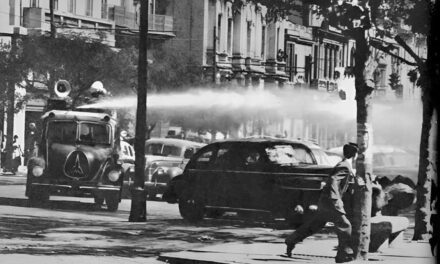

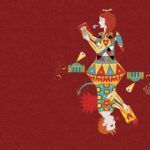
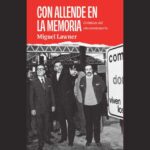
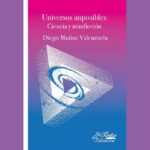

El cuento invita a reflexionar sobre el poder transformador de la lectura y la escritura. Baroja crea un juego literario…